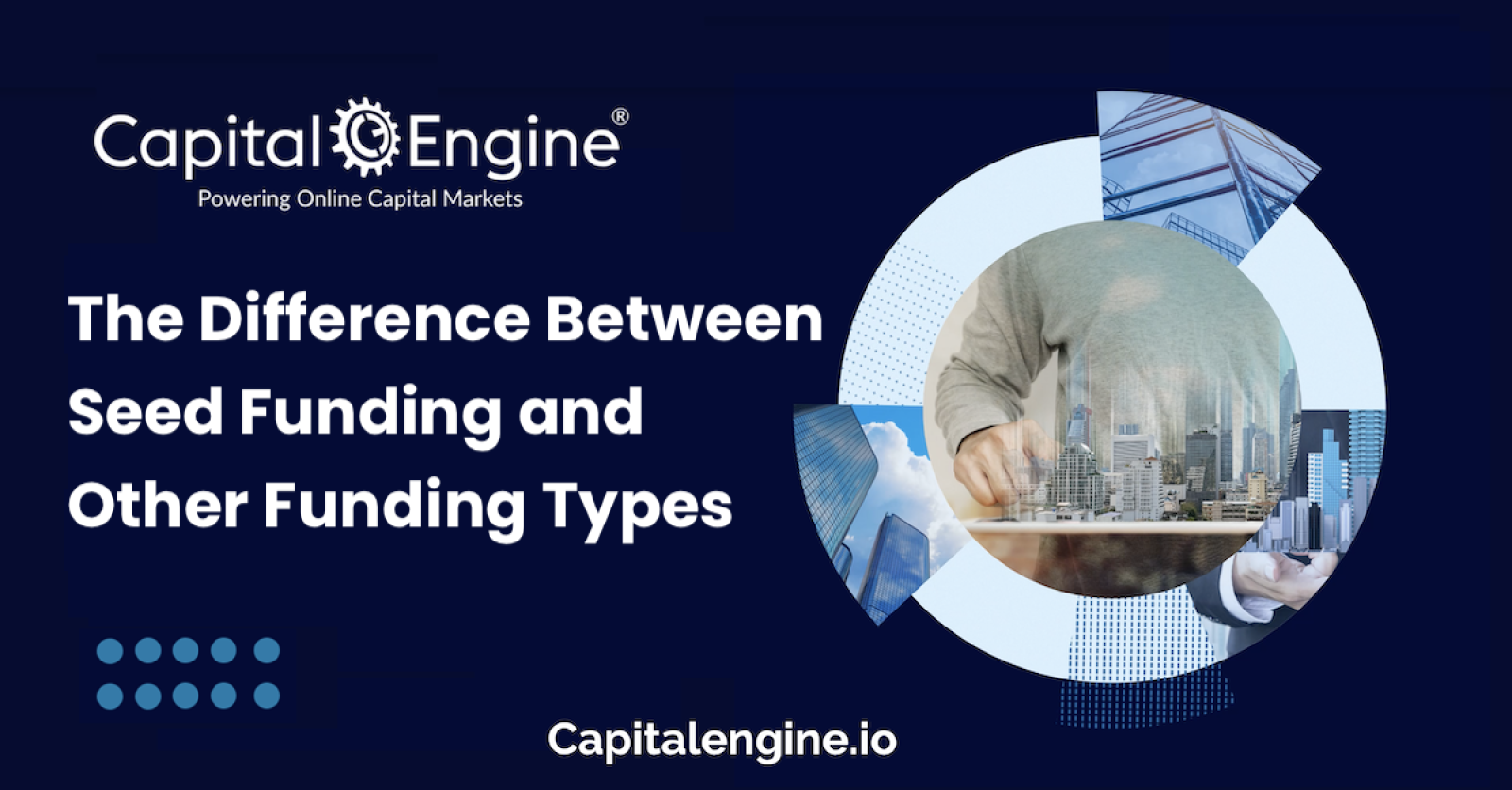Fundraising

The Difference Between Seed Funding and Other Funding Types
Jul 03, 2024
Startups navigate various stages in their lifecycle, each marked by unique development needs and funding requirements. Among these stages, seed funding stands out as particularly volatile and exciting. Here's how seed funding differs from subsequent funding rounds like Series A, B, or C:
Purpose:
Seed funding focuses on transforming an idea into a viable business concept. This stage often involves market research, product development, and team building. In contrast, later funding rounds aim to scale the business, expand market reach, enhance the product, or enter new markets. For example, a Series A round might be used to optimize the product and business model, while Series B could focus on scaling operations.
Amount Raised:
The amount raised during the seed stage is generally much smaller than in later rounds. As of early 2023, the average seed round was about $3.6 million, whereas Series A rounds averaged $18.7 million. Seed funding is typically sufficient to prove a concept or reach an initial milestone. As startups demonstrate their potential, they can attract larger investments in subsequent rounds to fuel further growth and expansion.
Types of Investors:
Seed funding often comes from the founders, friends, family, and angel investors—individuals or groups willing to take a risk on an early-stage idea. Later funding stages, however, attract institutional investors like venture capital firms, which invest larger sums in more established companies with proven track records. In 2021, venture capital firms invested $671 billion across 38,644 deals globally, showcasing the larger scale of investments in later stages compared to the average seed round.
Equity and Valuation:
In the seed stage, the startup's valuation is usually less established, allowing investors to receive significant equity for a relatively small investment. As the company grows and its valuation increases, it will give away smaller portions of equity for larger sums of capital. Typically, founders should plan to sell around 20% of equity during the seed round. In later stages, the company’s higher valuation means investors get less equity for their money.
Risk and Reward:
Seed funding is high-risk, as the business model and market fit are often untested. However, the potential rewards are substantial since early investors usually acquire a significant equity stake. As the startup matures and progresses to later funding rounds, the risk decreases, but so does the potential reward in terms of equity share. Early-stage investors who take on more risk can potentially reap higher rewards if the startup succeeds.
Terms and Conditions:
Seed funding agreements typically come with fewer terms and conditions compared to later rounds. As startups grow and attract more sophisticated investors, the complexity of funding agreements increases, incorporating more stringent terms and conditions. Later stage funding often involves detailed legal and financial stipulations to protect the investors' interests as the stakes become higher.
Understanding these distinctions is crucial for both founders and investors. While seed funding sets the foundation for a startup’s journey, subsequent rounds build on this foundation to drive growth and success.
About Capital Engine®
Capital Engine® provides forward-thinking organizations with efficient and scalable private capital and investor management solutions, for both traditional and digital assets.
Built for high-performance capital raising, our technology helps leverage the opportunity to better originate and showcase a diverse selection of private investment deals and offer these to investors i.e. a deal’s potential viability can be better assessed, market appetite determined and transaction promptly closed.
Our clients include broker dealers, family offices, wealth managers, incubators, accelerators, social impact and real estate funds, in providing customized SaaS solutions to power private capital and alternative investment platforms, with a strong focus on investor management services.
Interested in raising capital
Request a Call / Demo
Purpose:
Seed funding focuses on transforming an idea into a viable business concept. This stage often involves market research, product development, and team building. In contrast, later funding rounds aim to scale the business, expand market reach, enhance the product, or enter new markets. For example, a Series A round might be used to optimize the product and business model, while Series B could focus on scaling operations.
Amount Raised:
The amount raised during the seed stage is generally much smaller than in later rounds. As of early 2023, the average seed round was about $3.6 million, whereas Series A rounds averaged $18.7 million. Seed funding is typically sufficient to prove a concept or reach an initial milestone. As startups demonstrate their potential, they can attract larger investments in subsequent rounds to fuel further growth and expansion.
Types of Investors:
Seed funding often comes from the founders, friends, family, and angel investors—individuals or groups willing to take a risk on an early-stage idea. Later funding stages, however, attract institutional investors like venture capital firms, which invest larger sums in more established companies with proven track records. In 2021, venture capital firms invested $671 billion across 38,644 deals globally, showcasing the larger scale of investments in later stages compared to the average seed round.
Equity and Valuation:
In the seed stage, the startup's valuation is usually less established, allowing investors to receive significant equity for a relatively small investment. As the company grows and its valuation increases, it will give away smaller portions of equity for larger sums of capital. Typically, founders should plan to sell around 20% of equity during the seed round. In later stages, the company’s higher valuation means investors get less equity for their money.
Risk and Reward:
Seed funding is high-risk, as the business model and market fit are often untested. However, the potential rewards are substantial since early investors usually acquire a significant equity stake. As the startup matures and progresses to later funding rounds, the risk decreases, but so does the potential reward in terms of equity share. Early-stage investors who take on more risk can potentially reap higher rewards if the startup succeeds.
Terms and Conditions:
Seed funding agreements typically come with fewer terms and conditions compared to later rounds. As startups grow and attract more sophisticated investors, the complexity of funding agreements increases, incorporating more stringent terms and conditions. Later stage funding often involves detailed legal and financial stipulations to protect the investors' interests as the stakes become higher.
Understanding these distinctions is crucial for both founders and investors. While seed funding sets the foundation for a startup’s journey, subsequent rounds build on this foundation to drive growth and success.
About Capital Engine®
Capital Engine® provides forward-thinking organizations with efficient and scalable private capital and investor management solutions, for both traditional and digital assets.
Built for high-performance capital raising, our technology helps leverage the opportunity to better originate and showcase a diverse selection of private investment deals and offer these to investors i.e. a deal’s potential viability can be better assessed, market appetite determined and transaction promptly closed.
Our clients include broker dealers, family offices, wealth managers, incubators, accelerators, social impact and real estate funds, in providing customized SaaS solutions to power private capital and alternative investment platforms, with a strong focus on investor management services.
Interested in raising capital
Request a Call / Demo
Latest Articles





